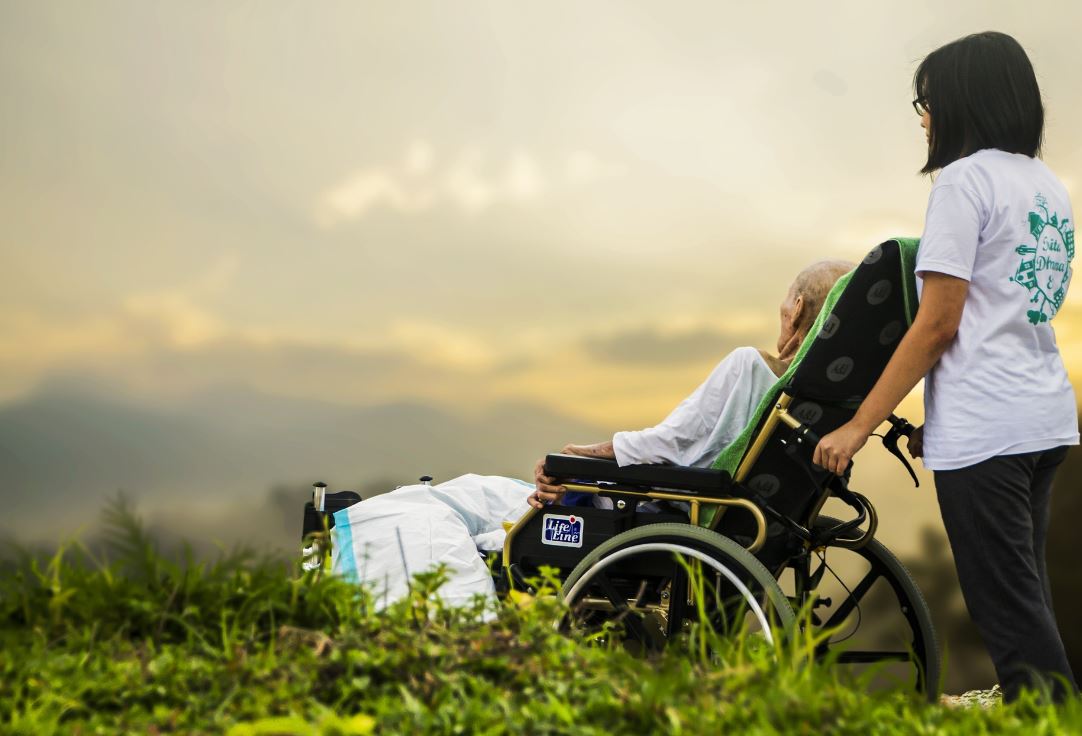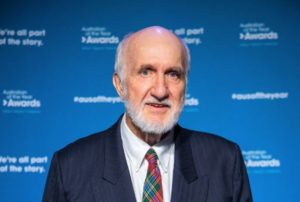
Flinders University disability and inclusion expert Professor Richard Bruggemann and Flinders Caring Futures Institute health economist Professor Julie Ratcliffe have looked at the 148 recommendations from the Royal Commission into Aged Care Quality and Safety.
Senior South Australian of the Year Professor Bruggemann welcomed the report and raised two immediate concerns.
“As I waded through the report of the Aged Care Royal Commission, two issues struck me,” he said in a statement to media.

“Firstly, there seems to be age discrimination in that people with disabilities under the age of 65 can get quite generous packages through the National Disability Insurance Scheme to enable them to live in their own communities. However those over the age of 65 are ineligible and have lesser aged care packages which force many into residential care, even when that is not their preferred option. As we dismantle disability apartheid we are increasing aged apartheid.
“Secondly, what is being done to meet the higher order needs of older people in residential aged care – and the needs for friendships, a sense of accomplishment and fulfilment?
“In 2017, a five-part ABC documentary series followed a group of residents of a nursing home – most of them frail, immobile and depressed – who interacted closely with a group of kindergarten students for several weeks.
“The results were measurable improvements in both their physical and mental wellbeing. Why was this so exceptional that it rated a TV series and what is the Aged Care Quality and Safety Commission doing to ensure that those higher order needs are being met?”
Matthew Flinders Research Fellow Professor Julie Ratcliffe welcomed the final report, strongly agreeing that “the foundations of the new system must place older people at the heart”. “I wholeheartedly agree with the Commissioners’ observations that it is difficult to measure quality in the current aged care system. New quality indicators should be older person focused,” she says, adding new measures for assessing older people’s quality of care experience and quality of life have been co-designed with older Australians as new key quality indicator,” Professor Ratcliffe said in a statement.

“We welcome the opportunity to continue our conversations with older people and their families, service providers and other industry peak bodies, the Federal Government and the Australian Quality and Safety Commission to ensure sector-wide uptake of our new measures as key consumer focused indicators for quality assessment and for economic evaluation.
“We need to galvanise on the report’s recommendations and continue our national conversations to ensure that all phases of the report’s recommendations are implemented successfully to deliver a high quality, efficient and sustainable aged care system for all Australians.
“As a health economist, I strongly support the recommendations for ensuring the economic sustainability of the system and for ensuring transparency, value and accountability. It is important to develop new evidence for determining the costs of providing safe and high-quality aged care services.”
Professor Ratcliffe’s research group’s previous study for the Royal Commission found strong general public support for high quality aged care and a willingness to pay additional income tax contributions to support universal access to high quality aged care for all older Australians in need.
- Professor Bruggemann talked about the Aged Care Royal Commission on 5MU’s SA Today program with Jennie Lenman.
Professor Bruggemann is a Professorial Fellow in Disability and Inclusion at Flinders University, where he developed and ran the Graduate Certificate in Disability Studies (Leadership). In 2020, he was appointed as Authorising Officer under the COVID-19 Emergency Response Act 2020 to consider applications to detain people who lack capacity and whose actions were putting themselves or other at risk of infection. He was also appointed to the Task Force to investigate the systemic failures that contributed to the death of Ann-Marie Smith.
In 2013 he was appointed as South Australia’s senior practitioner to reduce the use of restrictive practices in South Australia. Richard has been a board member of a number of community organisations and is currently the Patron of “Our Voice” a self-advocacy group for people with intellectual disabilities, Treasurer of the South Australian Council on Intellectual Disability and an Honorary Fellow of the Australasian Society on Intellectual Disability. He is currently the Senior South Australian of 2021.
Also see a recent publication by Flinders University PhD Betty-Jean M Dee-Price ‘Do the ends justify the means? Disability research in social isolation‘ (November 2020) in Volume 20, Issue 1-2 of Qualitative Social Work DOI: 10.1177/1473325020973443

